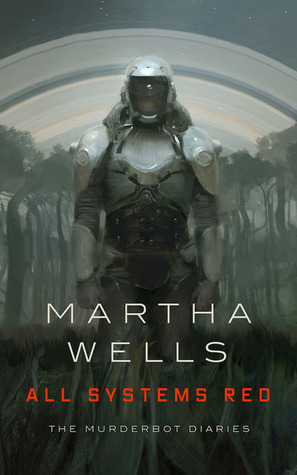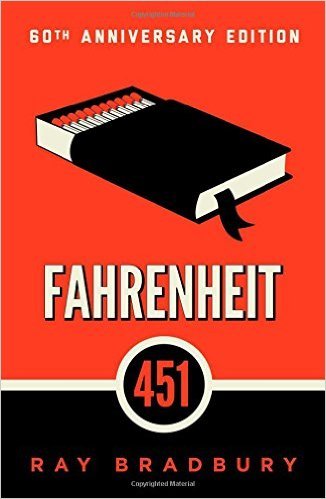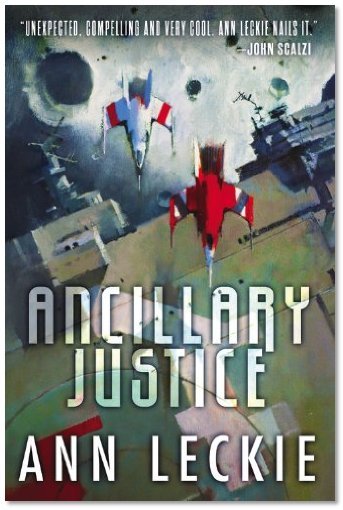#(while comparing it against the 'barbaric' ways of the old world which. :/ that novel does contain a lot of xenophobia and racism heads up)
Note
technically a vampire question but not really:
should I write victorian era vampire au fanfiction, is there any advice you would have for writing such a setting/any resources for immersing myself in such a setting? (rlly i just want to feed my brainworms, sorry if I’m being imposing lol.)
dracula takes place during the victorian era so i would absolutely recommend that!! as for general victorian knowledge all i have is based on the horrible histories "vile victorian" segments lmao. other than that, id say u could just do a bit of research on anything that pertains to ur plot, and there are a lot of accounts of victorian vampires and vampire panics :] mercy brown was a very popular case of supposed vampirism from the victorian era (though she lived in america, not sure where your story takes place but id assume england if ur talking about the victorian era? either way the case of mercy brown is interesting id say its worth learning about)
thats about as much as i can help with the victorian era, sorry! if u have any questions about the nature of vampirism ur portraying in ur story let me know :]
#you dont have to read dracula to pick up on the setting either#there are some wonderful posts on tumblr that discuss it#just look up the tag dracula daily and scroll till u find what ur looking for#whats really interesting about the victorian era and dracula taking place in that era is that there was so much new technology coming out#there were portable typewriters and phonographs and telegrams and blood transfusions#its old now but it was really a modern novel. and it really emphasizes the leaps in technology at the time#(while comparing it against the 'barbaric' ways of the old world which. :/ that novel does contain a lot of xenophobia and racism heads up)#but yeah#anyway. good luck with ur fanfic!! :)
7 notes
·
View notes
Photo




A Girl Stumbles on SF Written for Her
I don’t think Fahrenheit 451 ever had a chance.
I read The Giver by Lois Lowry in my youth and honestly any dystopia is going to be measured by the level of mind-blowing that happened as I read that book. (None has measured up so far.)
Though for years I’ve sought out fantasy and hardly ever science fiction, I’ve recently discovered a certain streak of SF that does appeal to me greatly. It considers angles of humanity that I usually think of as the territory of fantasy: personhood, cultures, colonialism.
This discovery is all @ninjaeyecandy‘s fault.
It Started With a Murderbot
When @ninjaeyecandy started promoting All Systems Red, she naturally zeroed in on the appeal for her mutuals like me--a drama-bingeing socially anxious AI? It’s like a space-opera about me.
I’m not often drawn to science fiction (the bleakness, the military stuff, the horror of space) but this was a perfect compliment of things I like--a character I strongly identify with but also get to watch come from a totally different state of mind. A gripping situation in an unfamiliar world. Seeing someone try to be good and do the job they are really good at, despite incredible odds.
It was incredibly human, though the POV was unhuman, with an emotional core that made the premise work.
It was brief and good. And I had quite a wait before I could read any more. But I could now see the possibilities for SF to really speak to me. Luckily, another book had been lurking on my TBR for way too long....
The Imperial Radch is Having Personnel Issues
I bought Ancillary Justice at the Sirens conference last year, having heard a ton of buzz about it. (Sirens is a conference dedicated to women in fantasy: writers and characters. It is great. Yes, the topic wanders to SF, too.)
Despite even reading Tumblr fandom stuff about it, I feel I came to the pretty fresh. I was surprised that the MC was a sentient ship, for instance, when I finally read the back copy. Though there were certain thematic similarities with All Systems Red, because of their MCs both being persons but not humans, the stories themselves had different directions.
Breq is signally different from Murderbot in that her memories are crystal clear, and she is angry. I don’t often read books where I enjoy a character being full of rage, but as a very old being in a very inadequate body, there was a sense of patience and calculation most vengeance-fueled characters are missing.
I immediately got the next two books out from the library. And the series did not disappoint. The personhood of Artificial Intelligence emerges as a major theme, which made me super-happy. Any SF where you have sentient beings in service to others because of their very natures is fraught ground--and I loved that Leckie took Breq from a very narrow focus, to fulfilling greater potential despite the crippling blow of losing everything but one sub-par body.
Miles Is Having An Interesting Year
I’ve heard a lot about Miles Vorkosigan, especially listed in collections of heroes with a certain flexible morality and reliance on their minds for derring-do.
I have been hesitant to pick up these books partly because of age and that sensation that if I didn’t like it I would probably be disappointing several friends. However, though there were bits I found a little rough going, overall Warrior’s Apprentice shared a lot of the attributes of my previous reads: a sense of humanity beyond just commerce, culture deeper than just politics, and the understandable concerns of specific people to ground a much broader scope of issues.
One of the blogposts that circulated recently talked about Lois McMaster Bujold neatly doing away with the problem of contraception in the first few pages, and another rebutted this with the fact that it is given consideration in several lights. Several cultures with different traditions and mores, including around sexuality, come up. This is the kind of deft touch that often is missing in futuristic or speculative worlds of various types.
Despite the fact that the hero of this book is a male of privilege from an imperialist heritage, he is also caught between two worlds, in his own way. His disability and upbringing give him insight that unfolds as he maneuvers his way into (and eventually out of) all his predicaments. Warrior’s Apprentice showed its age a little, especially set next to the two contemporary books, but it held up as a venerable ancestress of those novels.
The Male Touch
In a way, it’s unfair to compare Fahrenheit 451 to these books. It’s more an ancestor to Hunger Games than Ancillary Justice. Still, it was assigned in my Comp I class late into this reading spurt, and I couldn’t help but notice the comparative weaknesses. Not all of them excused by the fact that it is also significantly older than even Warrior’s Apprentice.
There is, of course, literary merit to F451. It has style that underscores the dehumanization of the characters, and the personification of things. I can see this working beautifully as a serialized men’s magazine story of speculative fiction.
The factors missing from its discussion are what makes me realize why I find the SF written by women so much more compelling.
(spoilers follow. you can skip to my summary if you want to read it for yourself.)
Montag Is Feeling A Little Nervy
The set-up of this book should be pretty familiar: books are banned, firemen are civil servants devoted to burning them (and the houses they find them in) and our hero is one of these.
An old woman dies in her house, burning herself with her books on purpose, and this rocks Our Hero Montag. There is an undercurrent of violence in his society, to suggest the barbaric nature of a culture without literature and free thought. But when Montag hits his wife, there is no inquiry into it, in the text. When he kills his boss (and coworkers, if my prof had the right idea: it’s not explicitly said) he notes that his boss wanted to die. But still, Montag KILLS him. And then he goes on to be warmly accepted into the arms of a circle of professors.
His wife tries to commit suicide, and then the next day is in denial she would ever do that. It’s clear their relationship is distant at best, and that this kind of isolation is normal in this culture, that everyone is leveled out, either by medication or cultural norms.
But this book never asks if Montag has any part in his wife’s depression. If he’s violent and dangerous. It’s very concerned with censorship and mass media, without entering into questions about community and relationship.
Who Owns The Planet? Who Owns The Bots?
The asking of these questions is the exact strength I find in Leckie, Wells, and Bujold’s work. While similar themes are explored by Max Gladstone in his fantasy series The Craft Sequence, but he is (in my somewhat greater experience of fantasy) the exception, not the norm, in considering these sorts of themes as a white American man.
Colonization is not morally neutral in any of the three former works. (F451 is so US-centric we don’t know if there’s just a civil war on or if another country exists outside this society.)
The personhood of AI is a question in both Murderbot Chronicles and Imperial Radch.
Leckie has brilliantly integrated the personhood of colonized cultures. The tendency of cultural imperialism to consider itself as having a higher being is literalized in the language of that culture. This is a lead-in to the question of whether the created beings of AI ships (who were programmed with a certain emotional range and independence of thought) can ever attain identity.
Wells is working in novella form, so in her first installment she has a tighter focus. What is the status of a “security” robot with artificial intelligence when its programming can betray it? If it has enough emotion to be emotionally detaching, is it a real person? If the people around it are startled by reminders of its vulnerability, when they bond with it, is it then a person?
The questions of ethics in rivalries on planets with resources and artifacts are in the background, but I fully expect them to be developed at some point in the future installments.
Bujold is writing in the 80s, more playfully engaging with the idea of feudal martial-culture planets, alongside bohemian neighbors who think war is barbaric, with clashes raising hackles around sex, gender, and bloodshed. Her hero has a feudal chivalry lurking in his treatment of the woman he’s in love with, but the influence of his mother’s culture makes him accept her desire to be involved in the fighting, and then choose her own partner. I do look forward to seeing what else she explored in the series, even if I don’t expect an interrogation of the premise of colonizing planets.
Reading these made me realized that what I want from SF is not see worlds built that are wholly bad, but to see characters who from the start are part of the struggle against injustice. Not to check out futures in which AI are sexy, and the world sleek, but where those AI are also questioning their place in the world. I’m excited to see women writers of SF rising to the occasion, and I’m excited to keep looking for this kind of literature with @sffbookclub.
There’s a lot more to discuss about these books together! I’d love to hear replies or even be tagged in response posts. :)
12 notes
·
View notes